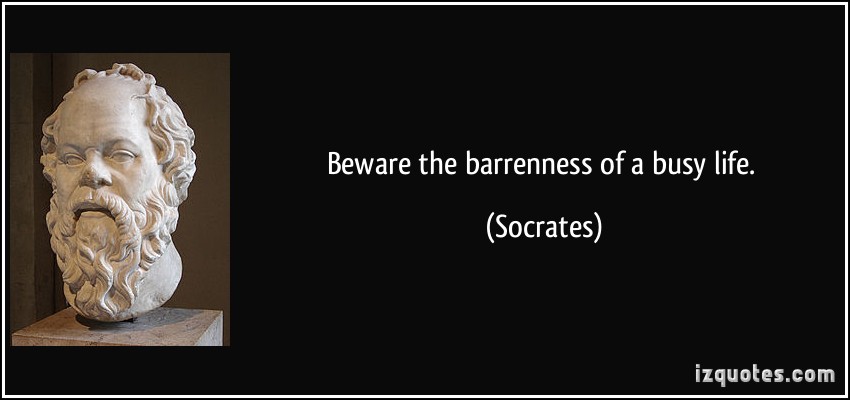
11 April 2014 by Yeo Teck Thiam –
I think many will remember the story of Gladys Aylward as a missionary in the 1930s. She was an English parlour maid who obeyed God’s call to serve in China. There she opened an inn for poor Chinese mule drivers in mountainous regions. She also led a group of young children trekking through war zones to resettle in a safer region, and her testimony was immortalised in the film, “The Inn of the Sixth Happiness.”
In thinking of this movie, I suppose also many will empathize with a quest to find peace from worldly struggles, and to find a stop somewhere on earth where we also find happiness. So I wonder if an earthly quest will lead to an inn of happiness in a troubled world, as we look to God for His blessings.

In our Christian living, we encounter, of course, diverging ideas about what God promises. No one dispute that God bless us when we walk with Him. God’s blessings will bring happiness and prosperity. Yet our actual circumstances differ in relation to these blessings.
So we often end up unable or unwilling, to decide which explanations are correct. Mostly, this is because we do not deny Scripture. Yet we cannot quite agree with some interpretations, but are unable to refute realistically, the reasoning.
The Abundance of Life
This is quite natural because we look to God to take care of us. If happiness and prosperity are not visible and we are suffering, it seems difficult to proclaim that God has really blessed us.
So it is often contended that the abundant life Jesus promises includes prosperity in earthly life. God watches over us, and He does not withhold His goodness and love for us. He makes our lives to prosper. This is about our fortunes in life. So we have reasons to be happy.
It is also in the Old Testament, for God promised to bring Israel to a land flowing with milk and honey.
What can we say? We do not reject prosperity because we do not wish to beg others for our living. But we also do not put material wealth as the criterion for blessings. For it is written: “Life does not consist of the abundance of things.” 1
So I concede it is “glorious to be rich”, even though rich people are not more happy. So also, the saying is ironic, “When poor, keep pigs; when rich, keep dogs.”
The Teacher in Ecclesiastes likewise said, “The sleep of a labourer is sweet, whether he eats little or much, but the abundance of a rich man permits him no sleep.” 2
Clearly, worldly prosperity and fortune is not our calling because God calls us to seek spiritual things. It is for our spiritual needs that Jesus died. Jesus also said that man shall not live by bread alone, but by every word from the mouth of God.
These are notable callings for the prize in life. However, we need to show how there is abundance of life, if we put aside the prosperity idea.
The Christian must be able to testify to God’s blessings of abundance of life, even though he is not rich or prosperous.
Prosperity and the Emblem of the Cross
Scripture reminds us there is a cross for everyone. It does frighten many a poor soul who is seeking happiness!
The sharp contrast is given in Scripture. The cross is an emblem of suffering for Jesus suffered for our sins. It is also an emblem of shame because sin is debasing and evil. Jesus bore this shame when He hung on the cross.
We seek the Lord because life and righteousness are found in Him. So we acknowledge the shame of sin through our repentance, and we turn away from sin because of the evil in sin. This is our rejection of the world and its splendour, just as our Lord did.
It does make us wonder why God saves us from sin in this way, by suffering for our sins. There is only pain in suffering. It also misses the prosperity and splendour of life on earth.
If the Christian seeks prosperity and worldly fortunes, he “works” for such rewards. This is true because not many strike the lottery, nor are born with a silver spoon in the mouth.
However, this ignores God’s grace because there is no suffering and shame that makes him need the grace in Jesus. Good fortunes have no sufferings!
So we find the cross is anathema to earthly goals for prosperity. In the Gospel, the cross was always challenged by a prosperity proposition. The notable factor, though, is that prosperity takes different forms of appeal. In this sense, our faith confronts the dolce vita and “sweet life”.
Nevertheless, it is an age old question. This can be seen from Martin Luther’s time when he delivered his Heidelberg disputation to Augustinian monks. There were issues in the church’s sale of indulgences to gain prosperity and favour for heaven, and Luther’s “Theology of the Cross” is a watershed address on the problem. It was a key platform for Protestantism.
The “Works” of Happiness
Nonetheless, the question arises: what kind of happiness can this grace bring, if there is no prosperity? And why must this paradox haunt us for the abundant life in Jesus?
There is a quaint observation that Socrates gave on the happy life. He spoke about this in the counsel he gave for marriage. Socrates said that by all means, get married. It is only natural.
Then he added, “If you find a good wife, you will be happy. If you fare poorly, you will become a philosopher.”
Obviously, some may decide that those who are happy do not suffer in marriage! And we also understand how to become a great philosopher. Socrates was a good example, we may say!
From ancient times also, the sages have known that happiness is not earned by works. Nothing that a person does can bring happiness. We have no power to make happiness come to us by “working” for it. So the rich may not be happy, as we know.
Aristotle observed that happiness comes from harmony, an activity of the soul in perfect accord with virtue. But in two millennia of his influence, most people choose to remember his other Nicomachean observation that a man on the rack (that is, suffering) cannot be happy.
Regrettably, this limited thinking falls short in expectations. Aristotle was pointing to the observation that prosperity cannot give happiness. Prosperity is not an activity of the soul! What prosperity brings is help to remove suffering, in the quest for happiness!
Likewise, Plato indicated Socrates was seeking truth in happiness, and this is not because of marriage, but it is, for example, in love. A loving wife is always good. It is why we sing hymns like “Blessed be the tie that binds our hearts in Christian love.”
Come Buy With No Money
Regrettably also, happiness is not a sales item. If it could be traded, and if philosophers have the answer, then we must expect such people to be billionaires. Their advice will be eagerly sought because everyone wants to buy happiness.
Also, people who write articles or features on this subject including this discussion, will become billionaires. Then again, if such people know the answer, why should they want to get rich when they already have happiness?
Some will remember an excellent piece of investigative journalism on happiness from Time magazine some years ago. There were helpful suggestions and observations given, but no answers, of course, on the origins of happiness.
Hence also, Aristotle and Plato did not provide answers for happiness, but their observations spur us to inquire why. In fact, the Bible also does not delve much on this either!
Indeed, when we read the Bible, we are struck by scant references on happiness. It seems strange when the whole world is seeking happiness. The closest we get to happiness is in the Hebrew word “asher”, but Scripture speaks more about “barak” which is Hebrew for blessed.
So it is written, in the beautiful invitation God gives in Isaiah 55. It begins with:
“Ho! All you who are thirsty, come to the waters.
You who have no money, come, buy and eat!
Come, buy wine and milk
without money and without cost.
Listen, listen to me, and eat what is good,
and your soul will delight in the richest of fare.”
Given this invitation, perhaps it is best I view the quest from other perspectives.
A Fleeting Virtue
We know happiness is often fleeting. Happiness disappears when there is suffering. We do not have to explain why. This happiness we observe has no permanence. It comes, and it goes also.
Yet, if we also have regards to God’s invitation above, if we accept this is God’s offer, then it is to God that we must seek for happiness.
In this regard, happiness is a gift available to everyone, for God is good to His creatures and He demands no money from anyone.
God gives this in His love, and it is not restricted to Christians, theologians, or philosophers. For God gives happiness in His grace to a distressed world, for every man, faithful or unfaithful, careful or indifferent, provided that the person is not discontented or ungrateful.
This condition is quite evident. A love for nature will make a gardener tend his garden happily. Yet a paid gardener may not enjoy himself. If the gardener is a contented fellow, he won’t grouch much. However, a discontented gardener is often unhappy.
Thus we observe people who are discontented are seldom happy. So also, ungrateful people are seldom happy. They have difficulty finding things to be happy about. However, if they become contented, they can be happy.
Jesus said that God causes the sun to rise on the evil and the good, and sends rain on the righteous and unrighteous in Matthew 5:45. This is God’s grace, which we know.
A farmer is grateful for rain to water his crop, so he is always happy to receive rain for this. This is true, whether he is righteous or unrighteous.
However, a boy in love is disappointed when he cannot have a picnic with his girl because it is raining. If he is ungrateful and curses the rain, he will be unhappy. If he accepts the rain as a disappointment, and is not discontented, he will not be unhappy. If the boy is grateful for the rain, he will be happy.
So, to begin, a gift must be received with gratefulness. When we are thankful in life, we cannot hide a smile. We know we are happy! So I do not want to forfeit the happiness in God’s blessings by being ungrateful!
To Find Greater Happiness
We also remember what Jesus said after he had healed ten lepers, but only one returned to give thanks —and he was a Samaritan. Jesus asked, “Were not all ten cleansed? Where are the other nine? Was no one found to return and give praise to God except this foreigner?”
Then Jesus said to him, “Rise and go; your faith has made you well.” 4
The ten lepers’ healing and cleansing was a material gift. These lepers were happy to be healed, of course. However, the Samaritan was made well, and not merely healed of leprosy. Happiness and salvation for the Samaritan were in Jesus’ spiritual gift for his grateful soul.
So I consider happiness comes as grace for a troubled world. God’s blessing is freely given as a temporary virtue so that man may desire a greater reality, and seek enduring blessings beyond this world and worldly things.
Naturally, we also desire a “larger” happiness that encompasses even times of suffering. To this end, we seek an enduring virtue. Then we can say this is “true happiness”.
A Joy Forever
In the Bible, “true happiness” is found in joy. It is because joy can be present all the time, in good circumstances or in troubles, in plenty or in poverty. Joy surpasses understanding. We can be joyful even if we are persecuted. We may suffer, but we can count on the joy of the Lord.
It is the fruit of the Spirit. So we sense God blesses godly people with joy.
God enables them to rise above trouble. God is there in their suffering. Their strength springs from the grace of God’s Presence. So, it is written: “The joy of the Lord is our strength.” 5
When we are overjoyed, happiness is in this overflow against suffering. The Psalmist speaks of this as “My cup is filled and running over.” 7
This is God’s wisdom to confound the troubles we face when we walk faithfully. It declares the grace of Jesus. It is sufficient for us for His strength is made perfect through weakness.6
In sum, happiness springs naturally, for there is not enough room to hold abundance from joy. You will always see the radiant smile of a happy face in a godly contented person.
Though the Fig Tree does not bud
To rejoice in the Lord brings the joy of God’s Presence. The Christian fills his heart with the Presence of God, rather than look at how materially poor he is. This is the sum of God’s invitation in Isaiah 55.
So I observe many contrasting pictures in looking for an inn of happiness.
A garden lover happily trims his roses without worrying how much money he makes for his work. A loving couple at their wedding banquet does not care much about the sumptuous food. A poor man gratefully gives thanks for having enough food for the family, and eats heartily. A dying man smiles serenely to see his grandchildren, perhaps for the last time.
Hence also, I did not find Jesus preaching prosperity because He was born in a manger. Jesus said foxes have holes and birds of the air have nests, but He had no bed to sleep. 8 Jesus did not direct me to look for a palace. Instead Jesus said, “Take up your cross daily and follow me.” 9
So it written: “Though the fig tree does not bud and there are no grapes on the vines, though the olive crop fails and the fields produce no food, though there are no sheep in the pen and no cattle in the stall, yet I will rejoice in the LORD, I will be joyful in God, my Saviour.” 13
NB: Scripture texts are from NIV.
Scripture References:
1 Lk 12:15 2 Ecc. 5:12 3 Eph 2:10 4 Lk 17:17 5 Neh. 8:10
6 2 Cor. 12:9 7 Ps. 23:5 8 Lk. 9:58 9 Lk. 9:23 10 Hab. 3:17,18
Note: Mr Yeo Teck Thiam is a retireer who used to work as a chemical engineer, specializing in food and perfume chemistry for an international food company and perfumer. His other main interest is astronomy and other mathematical matters, relating to the Biblical passages.
References for pictures
http://foundwalls.com/wallpapers/2013/07/Beautiful-Japanese-Inn-900×1600.jpg
http://www.themoviescene.co.uk/reviews/_img/2673-2.jpg
http://1.bp.blogspot.com/-ofHUpH9ZUvk/UuVM_Jh8sAI/AAAAAAAADcI/Ru9215tED2M/s1600/ThePromisedLand.png
http://1.bp.blogspot.com/-lXJq5XPucJ8/UfqxFSuqY_I/AAAAAAAAAqs/TQUVwigtL1E/s1600/seekkgod.jpg
http://2.bp.blogspot.com/-iUTM3H8B9kU/UVWE9OtSLzI/AAAAAAAAFVk/wICy1GgRYo8/s1600/take+up+cross.jpg
http://www.trbimg.com/img-51d7525f/turbine/la-la-he-greed13-jpg-20130704/600/600×396
http://izquotes.com/quotes-pictures/quote-beware-the-barrenness-of-a-busy-life-socrates-174040.jpg
http://jsd.co.in/wp-content/uploads/2012/05/SearchForHappiness.jpg
http://www.marcandangel.com/images/10-truths-before-happiness.jpg
http://www.artofdharma.com/wp-content/uploads/2013/04/Contentment.png
http://www.hymntime.com/tch/img/h/e/a/The%20Healing%20of%20Ten%20Lepers,%20by%20James%20Tissot.jpg
http://carolmcleodblog.files.wordpress.com/2014/02/harvest-of-joy.jpg
http://3.bp.blogspot.com/-Ou0gXrUqAMQ/UdH1y_cL3dI/AAAAAAAAE5Y/yT1xX48wMuI/s400/cross.jpg

















Leave a Reply